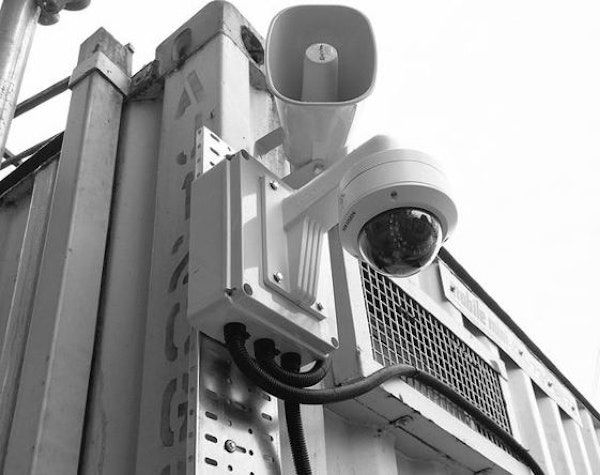- Fully qualified & insured teams
- Free site assessments
- Rapid response
- Rated Excellent
Intruder False Alarms And How To Prevent Them
Security alarms are a helpful deterrent to ward off potential intruders but, although these clever bits of kits may be helping to fend off con artists, they can be known to be ‘trigger happy’ over what constitutes a break-in. Here we outline the most common reasons for false alarms and how you can prevent them from happening.
When animals set off your alarm
Research carried out by consumer watchdog Which? has revealed 30% of false burglar alarms are triggered by insects and one in 10 false alarms is set off by a pet.
An insect detected inside the house was the most common cause of a false alarm, closely followed by the alarm being turned on by mistake and/or a household pet triggering the alarm’s sensors. Some of the more wacky individual responses to the Which? survey warrant a special mention here. In a similar vein to ‘the dog ate my homework’, other false alarm felons include a budgie who was reported to be attracted to the alarm’s sensor lights, and an inquisitive deer who pressed their nose against a window and triggered a motion detector.
System issues triggering alarms
Other common causes for false alarms can relate to the system technology. Wireless interference, loose connections and low batteries can all be guilty parties when an alarm is triggered in error. Power interruptions, which may occur during storms and high winds, can also set off your alarm.
Bizarre burglar alarm blunders
If you’re still getting over the fact a deer’s nose pressed against a window can cause a burglar alarm to go off then these culprits are even more curious. From an overenthusiastic postman who pushed post through a letterbox too vigorously to a helium balloon that slowly deflated while the homeowners were away and then floated to the floor triggering a motion sensor – these bizarre responses deserve a Buzz Feed column of their own.
What happens when it’s a false alarm?
What happens when your alarm goes off will largely depend on the kind of security system you have installed. If you have a monitored alarm you will pay a fee to a company who is notified when it is triggered. That company will then either contact the police on your behalf or one of your designated ‘key holders’ depending on the arrangement you have in place with them.
Most homeowners who have burglar alarms have a standalone system – also known as a bells-only alarm. This is the kind of alarm that makes a piercing noise when it is activated which is, in itself, an effective deterrent. However, unless you have a kindly neighbour who can deactivate the system nothing more will happen until you reset it.
Some smart security systems will automatically contact you directly, either by a phone call or text message when the alarm is triggered. You can then deactivate the alarm from your smartphone, via an app, once you’re sure it is a false alarm.
The occasional false alarm is usually considered par for the course – after all, no one can legislate for a deer pressing their nose against your window – but recurrent false alarms are an annoyance. Not only that but if your monitored security system is linked through to the police then three false strikes can mean you’ll be struck off their register and they won’t attend any future alerts. Even the patience of kindly neighbours can be worn thin if your alarm repeatedly goes off, meaning they may be less likely to assist when it does go off for real.
How can I minimise false alarms?
If you have pets at home, consider investing in pet-friendly motion sensors where you can adjust the sensitivity of the detectors. Check with your alarm company – and your insurance company – first though to ensure you’re not in danger of invalidating any claims in the event of an actual break-in.
Make sure sensors are placed where they won’t be interfered with or knocked about.
Have your alarm system serviced regularly (at least once a year) and change the batteries in your sensors as soon as they start to get low, as this can be a common cause of alarm systems malfunctioning.
Keep sensors and motion detectors clean and dust-free as dirt build-up can cause them to trigger the alarm. Cleaning them can also prevent spiders and other insects from making them their home and walking across them, which will set the system off.
Having a power continuity plan in place, such as battery back-ups, will give you peace of mind that even in the event of a power outage your system will still perform properly.
While false alarms will occasionally happen keeping your system well looked after, out of harm’s way and with preventative measures in place, will help to minimise mistakes.
We can provide a remotely operated alarm system with as many motion sensors as you require. The alarm system can be set to record when activated, so we can see if there is a genuine need for alarm or if the sensor has been tripped in error, by an animal for example. In the case of a real break-in, the recordings can be used to identify the culprit(s).
Unlike a standard burglar alarm, a monitored burglar alarm will never go unheard and our alarm system can be operated and reset remotely – without the need to visit the property or disrupting the neighbours.
Whether your property is vacant or you want peace of mind when you’re away from your home that someone is still keeping a watchful eye on it, contact our team for a no-obligation chat to discuss your security options.
Request a free no-obligation quote
We respond in under 30 mins on average (excl. weekends)
